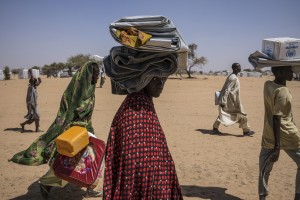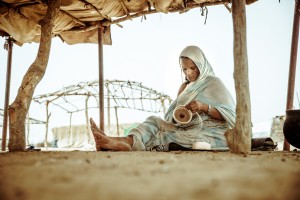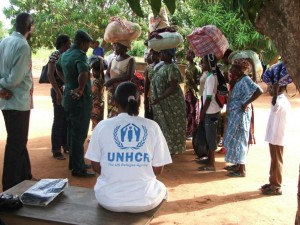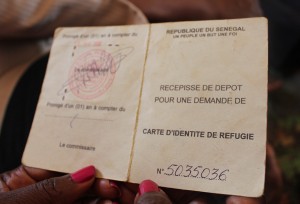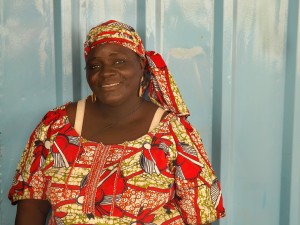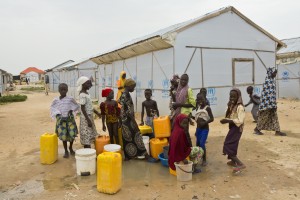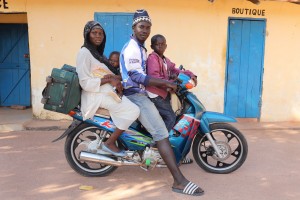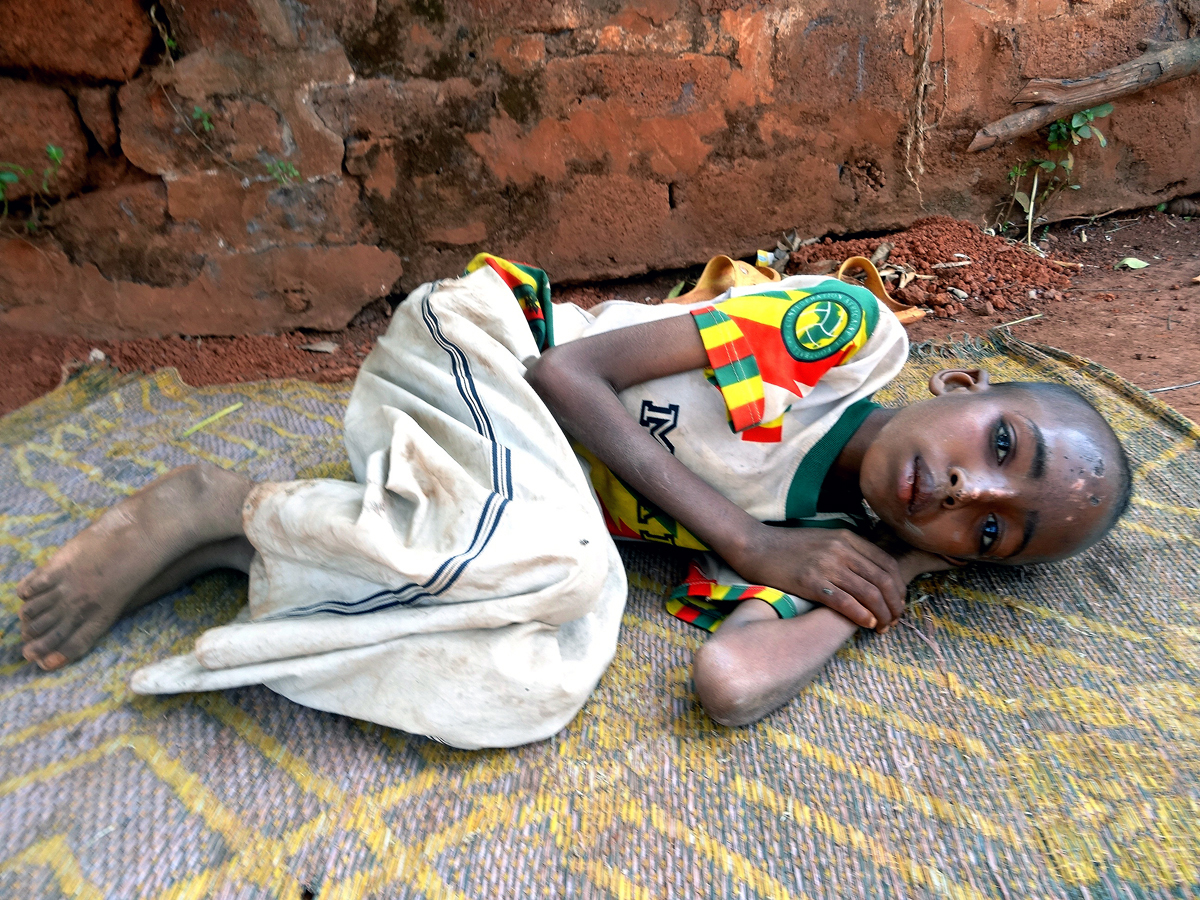UNHCR seeks rescue of ethnic group from Central African Republic town
Several hundreds Peuhls have been trapped for the past months in Yaloke town
BANGUI, CENTRAL AFRICAN REPUBLIC, 23 December, 2014 (UNHCR) – The UN refugee agency on Friday expressed growing concern for hundreds of members of the ethnic Peuhl minority trapped for several months in the town of Yaloke. Adults and children among the 474 Muslim Peuhls in Yaloke have become severely malnourished. More than 30 per cent are suffering from malaria. And there are six known cases of tuberculosis. Since their arrival in Yaloke last April, 42 people among the group have died, while others are becoming weaker by the day.
“Despite the presence of international forces, the group at Yaloke [some 200 kilometres north-west of the capital Bangui] is still subject to recurrent threats, verbal and physical aggression, and looting by anti-Balaka militias,” UNHCR spokesman Adrian Edwards told journalists in Geneva. “Urgent humanitarian assistance is needed along with help in relocating them to safer places, either inside the Central African Republic or to neighbouring countries,” he added.
In early February this year, Peuhl minorities were attacked in several towns in Lobaye prefecture to the west of Bangui. About 700 people sought to reach the main road running through the prefecture to take trucks to Cameroon or Chad. They spent two months on the run, hiding in the bushes at night.
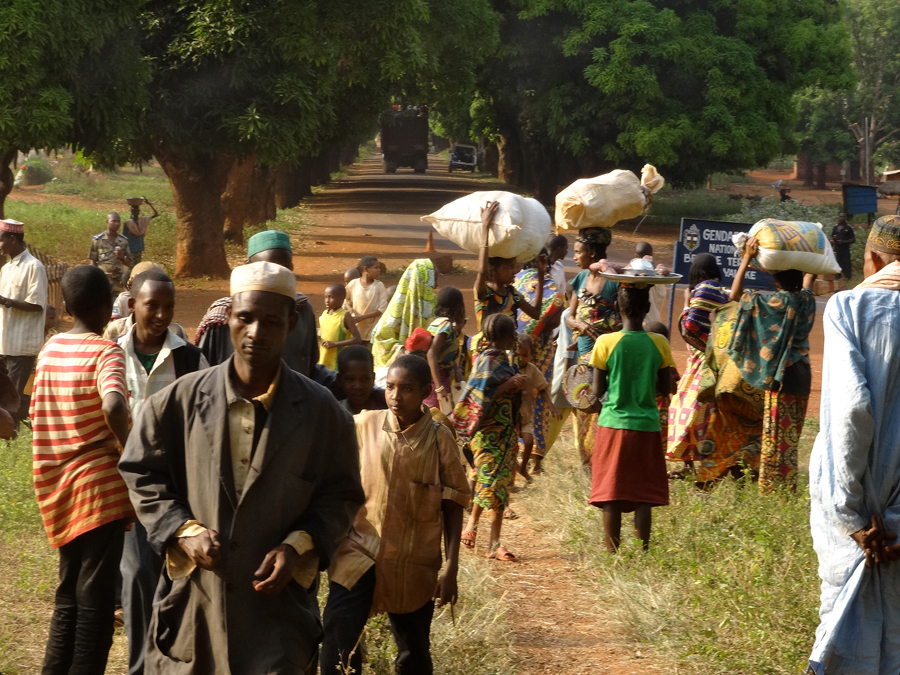 UNHCR / Matho Dore
UNHCR / Matho DorePeuhl people in Yaloke watch a truck heading to Cameroon. Following UNHCR’s mission to Yaloke on 18 December 2014, more than 90% of them wish to seek asylum in Cameroon or in Chad.
Many lost family members and friends after being caught or shot at by anti-Balaka groups. April saw more than 50 men killed in attacks by anti-Balakas, who also took 7,000 head of cattle – an important source of livelihood and nutrition. Many people found sanctuary further north in Yaloke, and were hoping to leave the country. Yaloke was once a thriving town, home to some 10,000 Muslims. “Today, the displaced Peuhl are the only Muslims still in Yaloke, and they are confined to an overcrowded site for the internally displaced. They cannot go beyond a 500-metre perimeter because of the dangers. This means that they cannot seek safety elsewhere but it also impedes them from securing a livelihood or seeking other help,” Edwards said.
A UNHCR team visited the group last Thursday to assess their situation. It found that more than 90 per cent want to seek refuge in Cameroon or Chad. People pleaded for assistance with vehicles and security to help them leave the country. Others wanted to be relocated away from Yaloke, but this is no longer considered viable. More than two years of inter-communal violence have displaced hundreds of thousands of people in Central African Republic. Nearly 440,000 people remain displaced inside the country and some 190,000 have sought asylum in neighbouring Cameroon, Chad, the Democratic Republic of the Congo and the Republic of Congo.
Today, more than 36,000 people remain trapped in seven enclaves across the Central African Republic. UNHCR has access to these populations and has conducted several missions to register their intentions. Some have said they want to seek asylum in neighbouring countries, others would like to move within the country and a few wish to stay. UNHCR has coordinated and facilitated the evacuation and relocation of several communities in the past. The refugee agency has also been promoting social cohesion among communities wishing to stay.
